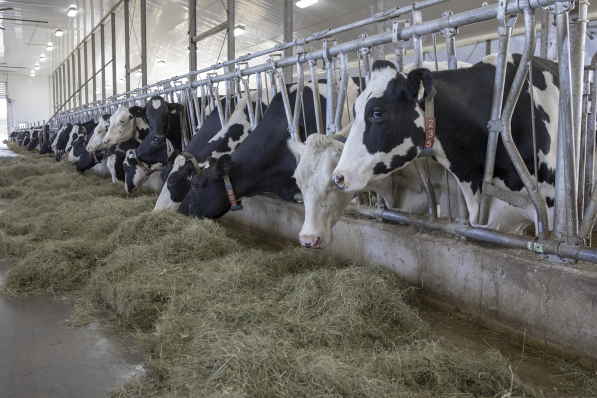She has just one question: “When is the right time to start including our daughter-in-law in family business meetings? She doesn’t know a thing.”
How would you respond?
Reflective listening is activated, and I ask: “She doesn’t know a thing about what? (Match the words.) What expectations do you have of her? Help me understand. Tell me more. How long has she been married to your son?”
In my coaching experience, it is best for the farm team to have collaborative decision-making, with everyone being respected for their input and ability to create solutions.
Coming off of harvest season when everyone was working together, use that for a mindset shift in how you manage the challenges ahead. Look at all the opportunities you have to identify the challenges together as a team, and brainstorm solutions.
The daughter-in-law in the scenario above is likely reeling with anxiety and frustration. Her in-laws and possibly her spouse have certain expectations of her behaviour and knowledge, crafted into a tight box with huge assumptions.
It’s time for a collaborative and proactive approach to decision-making on our farms.
Last June, I purchased the book Raising Human Beings by Dr. Ross Greene, a former Harvard professor. I think his approach with children transfers well to de-escalating the drama on farm teams.
Greene says we need to understand people’s behaviour is a result of incompatibility with expectations. Children act out when their skills are incompatible with the expectations they are under or the environment they are in. Imagine a city-raised new bride on the farm who has not had the chance to discuss or explore all of the “unwritten rules” of her new home and family.
Greene sees incompatibility as an opportunity to find solutions. Creating solutions is of one of the core principles of positive conflict resolution.
This list reflects the key skills Greene suggests parents need to explicitly try to teach:
-
Empathy: This is your ability to gather information to truly understand concerns. In my skill set, it is deep listening to explore and discover what the other person is truly feeling, thinking, needing and wanting. If you are getting feedback that you are a poor listener, then ask your team what you could do to be a more effective listener. I’d put down your cellphone, look the other person directly in the eye and remove distractions for your conversation to be more effective.
- Appreciate how your behaviour affects others: This is where we want to knock down assumptions and ask more questions. Do you have any idea how your actions are impacting our farm team? What would you like me to do differently? Silence from a daughter-in-law may mean she has given up trying and decided to be aloof. Aloof people are a hot button for me; I really truly want to know what people are thinking and feeling so we can create solutions. Silence can be a form of violence and stonewalling.
Greene uses the term “assumption-free living” as a goal for better lives. Don’t assume you know the reason or intent of another person’s actions. Ask them to clarify their intentions. Remember, your intent is hidden in your mind unless you are willing to communicate it. Circle back to the other person to share how their words and actions affect you. Love does not read minds.
Farmer Megz Reynolds (@farmermegzz) fell in love with a farmer when she was a film-maker from Calgary. She studied to be a heavy-duty mechanic, as she knew that skill would be helpful to the farm. I love this story. Megz, as she is known, was willing to create new solutions to add skill to the farm team. Imagine if the daughter-in-law in our story was asked about the skill sets she already possessed that would be helpful to the farm – and was embraced for it.
-
Resolve disagreements without conflict: This means you have crucial conversations by staying calm and sharing concerns. Greene suggests parents identify the issue that is a priority, share their concerns and then work with the child to brainstorm solutions. You pick a solution that could work and give it a try.
-
Take another person’s perspective: The ability to put yourself in the other person’s shoes is another positive conflict resolution skill. Can you imagine what it feels like to enter the culture of agriculture when you have no idea of all of the unspoken expectations for you on the farm? What does it feel like to be a land-rich founder with few liquid assets or cash flow problems, and be worrying about divorce?
- Honesty: Being transparent about your fears and finances is likely hard for you, but take baby steps in being vulnerable with respect as you communicate with each other. Financial transparency helps each generation on the farm be clear about workable expectations and keeps the creditors happy when communication is a two-way street. It also breaks down assumptions about who has more financial freedom and gives power to all parties to make better collaborative decisions for debt servicing. I know a daughter-in-law who made a six-figure income off-farm, yet nothing she did was good enough for her father-in-law. He had no clue about her cash flow.
I have a friend, mother of five, who makes observations of her daughter-in-law’s behaviour with permission. She asks, “May I make an observation?” She is coming from a place of mercy, not judgment. This takes courage as a deep investment in building stronger relationships.
Cheers to assumption-free living on our farms this fall and beyond. ![]()
PHOTO: Photo by Mike Dixon.
Elaine Froese, CAFA, CSP, CHICoach, farms in southwest Manitoba near Boissevain with her husband, son and daughter-in-law. Visit Elaine Froese for tools and books.

-
Elaine Froese
- Certified Farm Family Coach
- Email Elaine Froese








